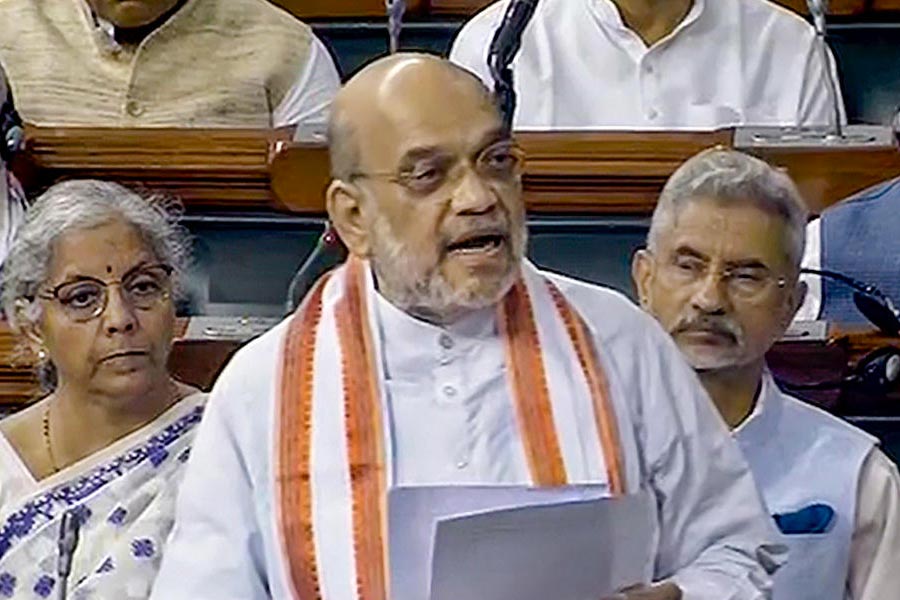The bills to replace the Indian Penal Code, 1860, Criminal Procedure Act, 1898, and the Indian Evidence Act, 1872, were introduced in Parliament in the absence of the Opposition INDIA parties, which were not in the Lok Sabha in protest against the suspension of Congress leader Adhir Chowdhury.
Shah proposed that the bills be referred to a parliamentary standing committee and promised to come to Parliament for their passage in the near future.
The process to draw up the new laws reflecting “Bharatiya aatma (soul)” had been started in 2019 under the direction of Prime Minister Narendra Modi, he said. Shah hailed the Hindi names, Bharatiya Nyaya Sanhita, Bharatiya Nagarik Suraksha Sanhita and Bharatiya Sakshya, either unaware or unconcerned that large parts of India do not speak the language.
Tamil Nadu chief minister M.K. Stalin protested against the “Hindi imposition”. “Recolonisation in the name of decolonisation! The audacious attempt by the Union BJP Government to tamper with the essence of India’s diversity through a sweeping overhaul — Bharatiya Nyaya Sanhita, Bharatiya Nagarik Suraksha Sanhita, and Bharatiya Sakshya Bill — reeks of linguistic imperialism. This is an affront to the very foundation of #INDIA’s unity. BJP and Prime Minister Modi have no moral right to even utter the word #Tamil hereafter,” he said in a tweet.
His DMK colleague and Rajya Sabha MP P. Wilson said: “Shocked to see names of new IPC, CrPC and Evidence Act in Hindi. Maybe the Hon. Union Home Minister has not seen Article 348 of the Constitution of India?” Wilson added that Article 348 of the Constitution says that “names of Bills and Acts must be in English”.
“South Indian lawyers are going to spend most of the time in courts trying to pronounce these names,” he added, demanding “correction at once”.
Shah claimed the aim of the proposed laws will not be punitive but to give justice to all and that the existing law on sedition would be repealed.
A closer examination, however, showed that the sedition provisions have been retained under a new name and with a wider definition of the offence.
“Whoever purposely or knowingly, by words, either spoken or written, or signs, or by visible representation, or by electronic communication or by use of financial mean, or otherwise, excites or attempts to excite, secession or armed rebellion or subversive activities, or encourages feelings of separatist activities or endangers sovereignty or unity and integrity of India; or indulges in or commits any such act shall be punished with imprisonment or life or with imprisonment which may extend to seven years and shall also be liable to fine,” Section 150 of the proposed law under the new name reads.
There were no Opposition members present to highlight and oppose the provision.











